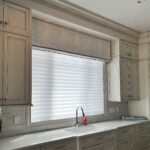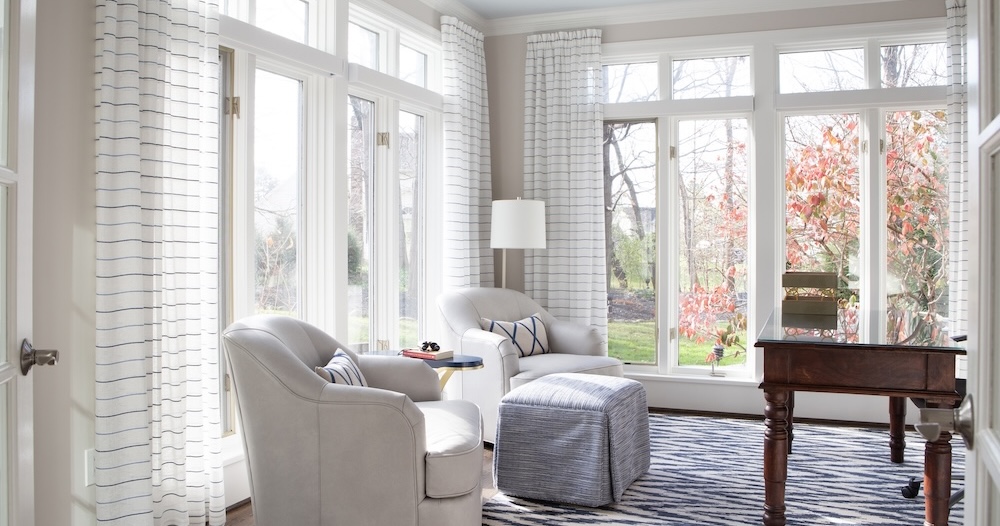As a workroom serving interior designers for over two decades, we’ve seen how the right top treatment can transform both the aesthetics and functionality of window designs.

Whether you’re looking to conceal mechanical elements for motorized window treatments, create an architectural focal point, or enhance energy efficiency, understanding your options in top treatments can help you deliver solutions that delight your clients.
Valances vs. Cornices: Understanding the Basics
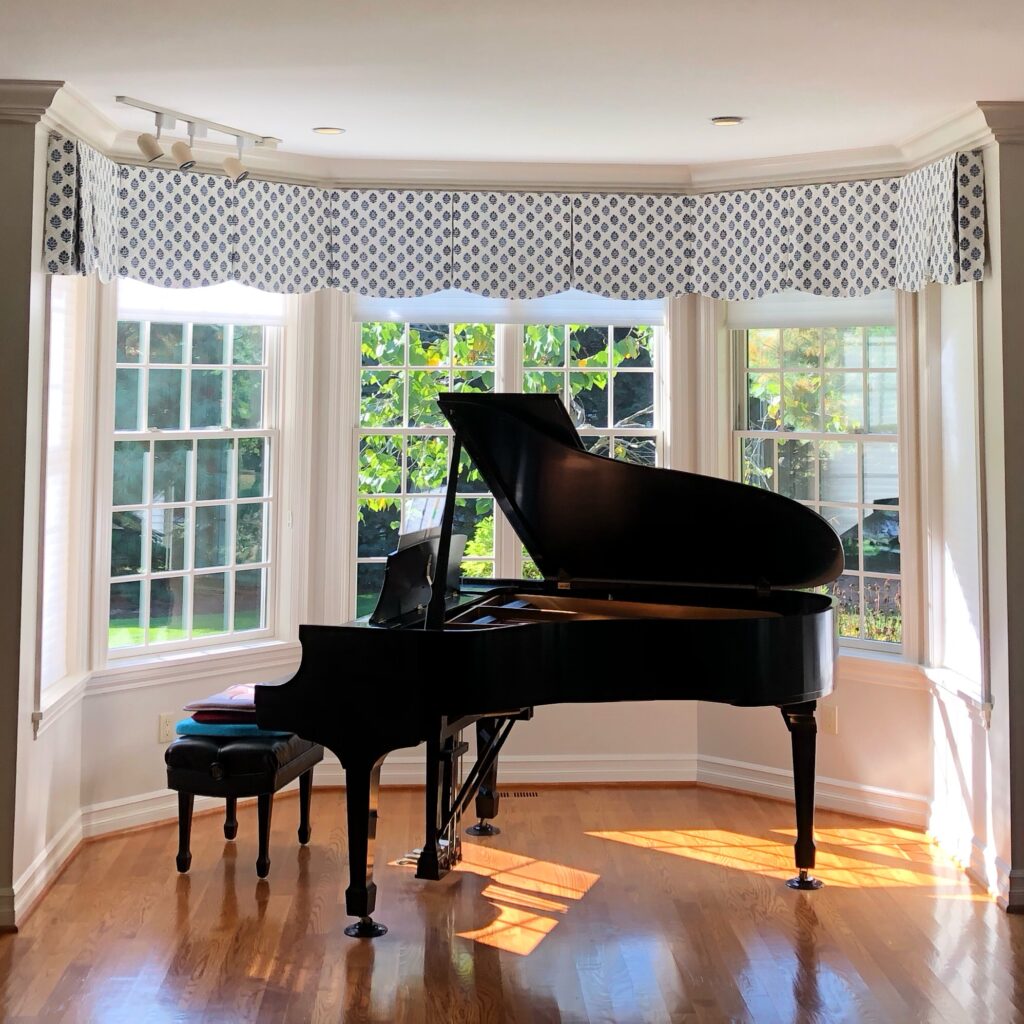
Let’s start with the fundamental difference between these two top treatments. Valances are soft treatments made from fabric, offering flexibility in design and style. From structured box pleats to faux Roman shades and gentle swags, valances can be crafted to match any design vision.
Cornices, by contrast, are hard treatments typically constructed from wood or MDF and often upholstered. They provide clean lines and architectural definition, making them particularly effective in contemporary or transitional spaces.
Design Solutions Through Strategic Layering
Top treatments excel at addressing common window challenges while providing opportunities for sophisticated layering. They effectively hide mechanical elements like shade cassettes and motorization components while concealing architectural imperfections such as uneven window heights.

When paired with other window treatments, they create both practical solutions and visual interest. A structured cornice paired with side panels offers a tailored look, while a valance layered over sheers and draperies adds depth and dimension. These combinations not only enhance temperature control but also prevent light leakage—particularly valuable in bedrooms and media rooms.
Options in Valance Styles
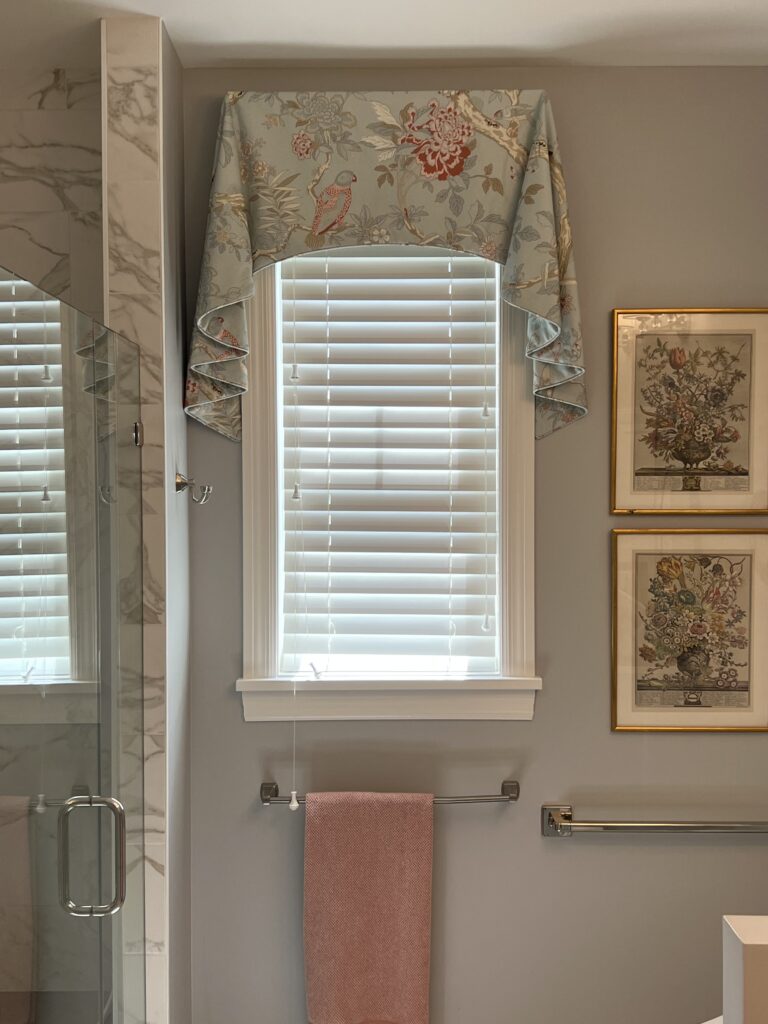
The world of valance styles offers diverse design possibilities to match any aesthetic vision. Box pleated valances bring tailored, architectural lines to a space, while London shades provide a relaxed look with gentle swags.
Board-mounted styles create clean, contemporary designs, and awning valances introduce unexpected angles and visual interest. Each style can be customized through fabric selection, trim details, and precise proportions to complement your overall design scheme.
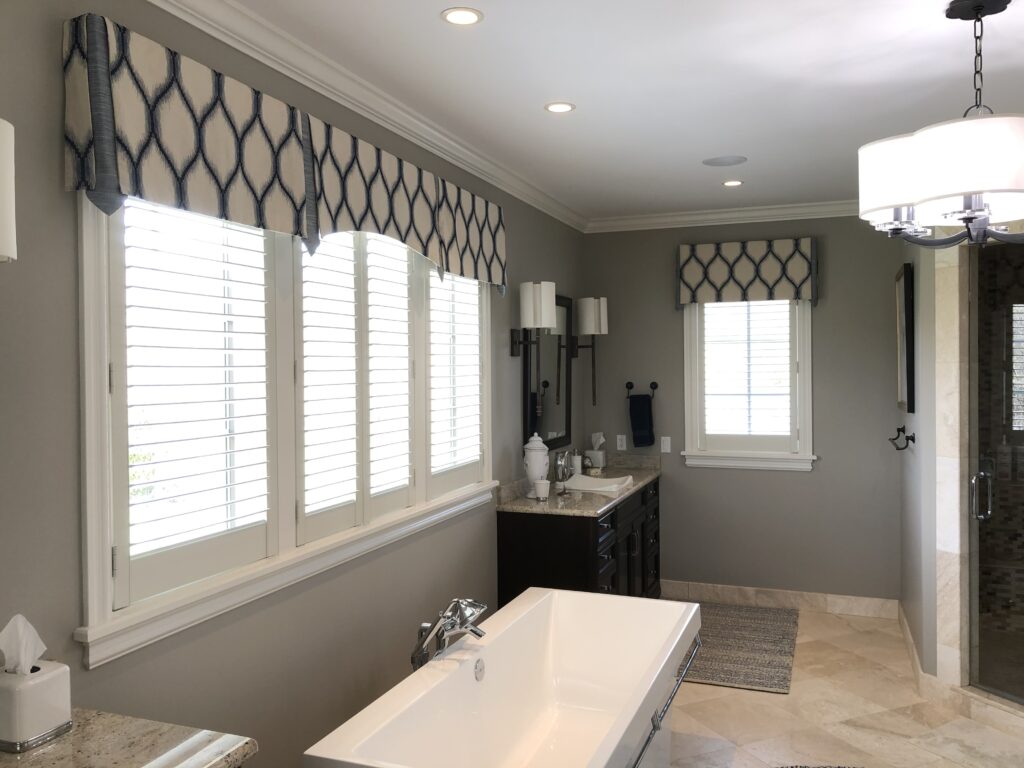
Technical Considerations
As someone with an engineering background, I appreciate the technical precision required for successful top treatments. Key factors to consider include:
- Pattern repeat and fabric width for valances
- Proper mounting depth for cornices
- Stack-back space when layering treatments
- Structural support requirements
- Ventilation needs around windows
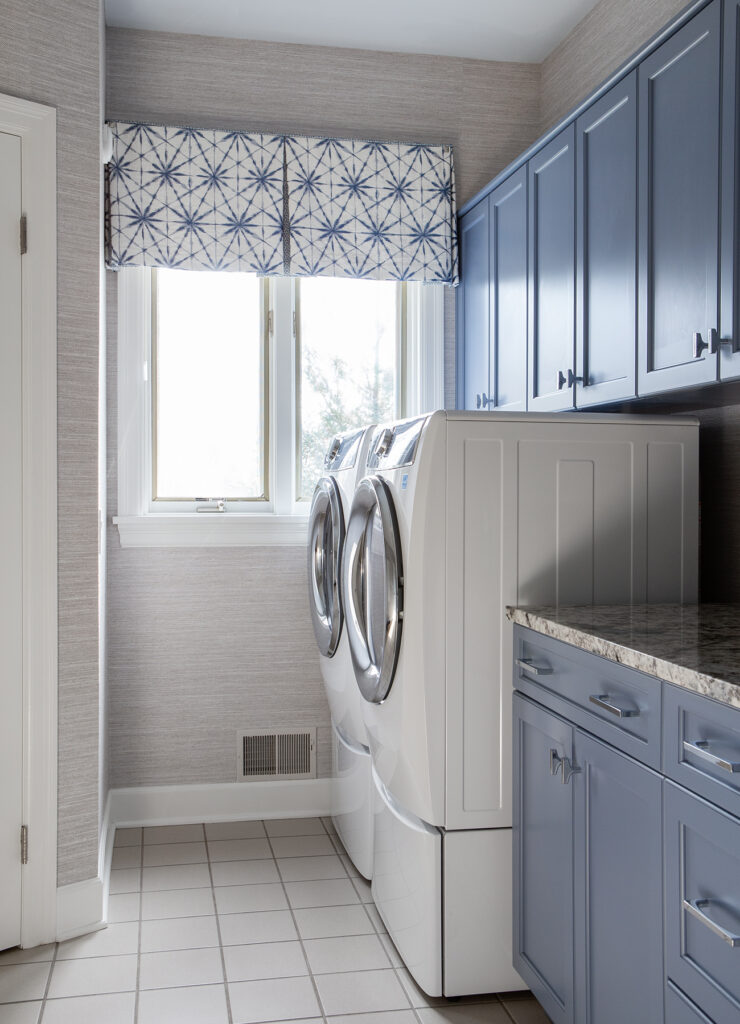
Making the Right Choice
When selecting top treatments for your projects, consider the room’s function and your client’s lifestyle needs. Window size and proportion play crucial roles in determining the appropriate style and scale.
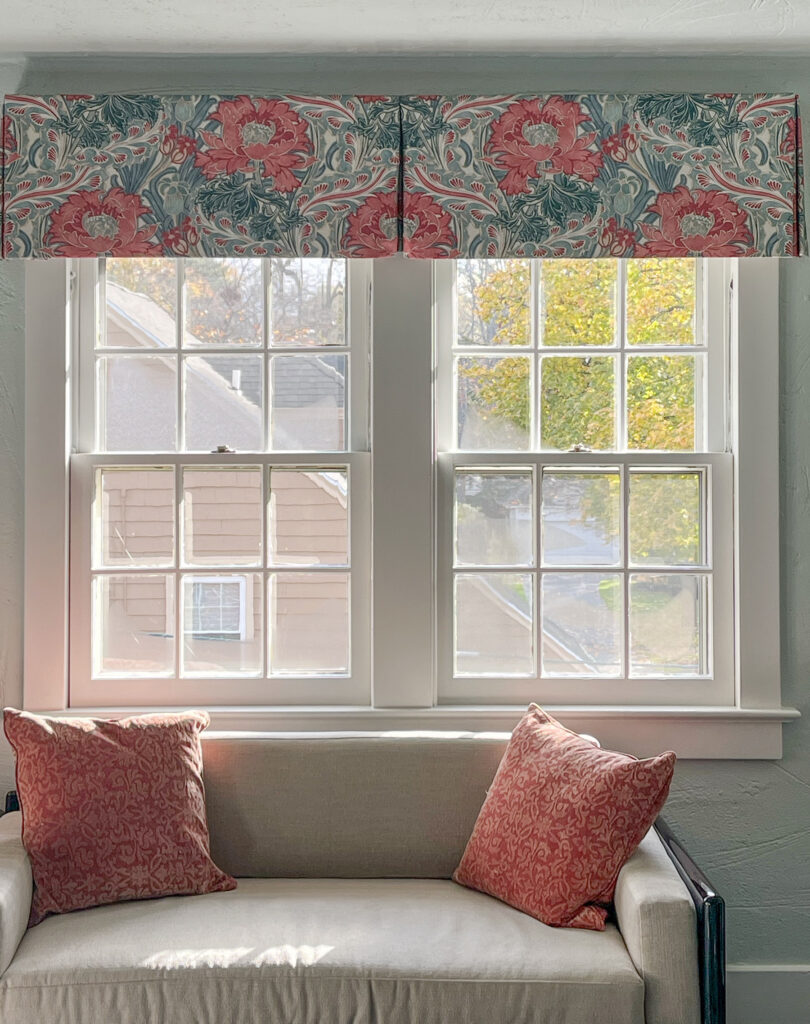
The overall design scheme, light control requirements, and maintenance preferences should also guide your selection process. These considerations ensure that the final treatment not only looks beautiful but also serves its intended purpose effectively.
Partner with Experts
Working with an experienced workroom ensures your top treatments are properly engineered and executed. We help you navigate technical requirements while maintaining design integrity, ensuring treatments that function flawlessly and delight your clients.
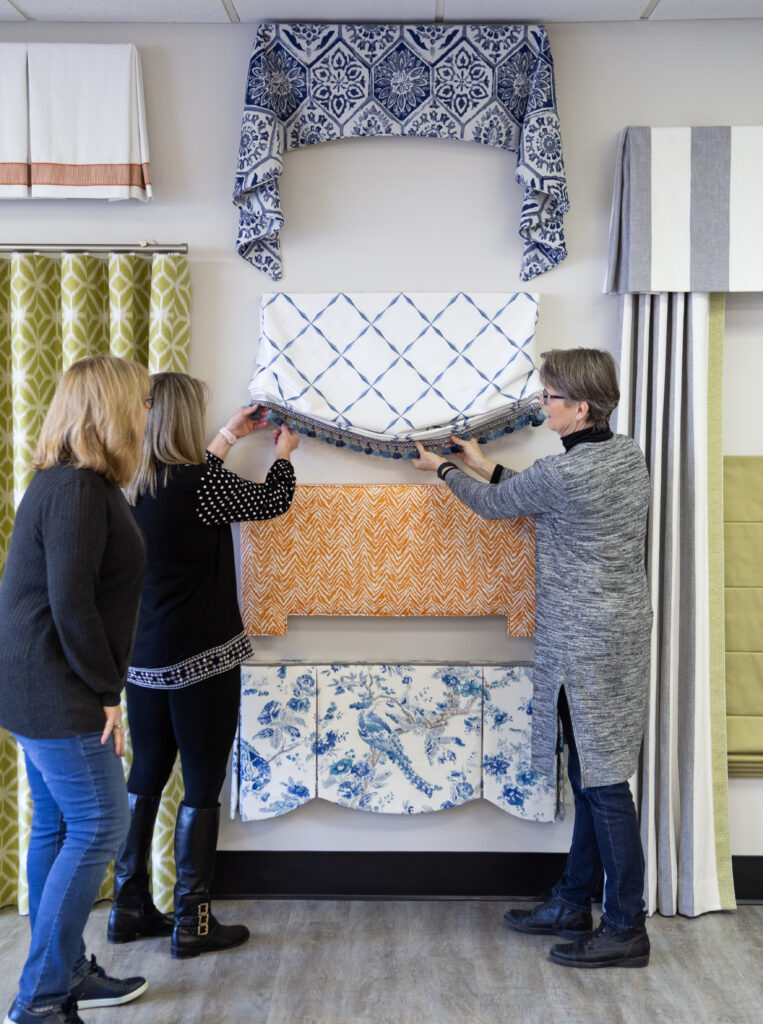
At Parkway Window Works, we see ourselves as your technical partner, handling the complex mathematics and engineering so you can focus on design. Our streamlined process includes detailed measurements, precise pattern matching, and careful installation planning—ensuring your vision is executed exactly as intended.
Contact us to discuss how we can help you incorporate top treatments into your next project. We’re here to support your design vision with technical expertise and practical solutions that work.



